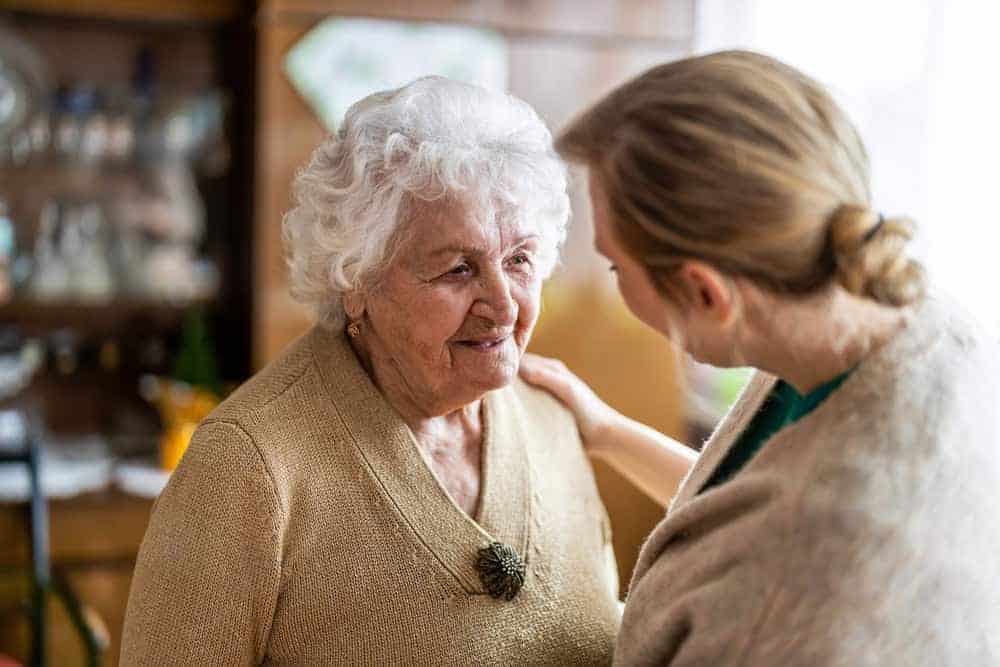
Your elderly loved one is terminally ill, and approaching the end of life. You have heard about hospice care and its benefits, but you also have some concerns about questions and statements such as
- Hospice is only for cancer patients
- Choosing hospice means giving up
- Hospice hastens death
In this article, we’ll debunk 10 common myths about hospice care, and provide in-depth answers to some frequently asked questions about hospice care. This way, you can make an informed decision about your loved one’s care as they approach their final moments.
Let’s get started.
Common Myths About Hospice Care
Here are some common myths and misconceptions about hospice care you may have come across
Hospice is only for cancer patients
While hospice started as an end-of-life care option for cancer patients in the mid-1970s, it has evolved to become a standard of care for ill patients approaching the end of life.
Patients with conditions such as end-stage heart disease, Parkinson’s disease, Alzheimer’s and dementia, or end-stage liver or kidney disease can also benefit.
Hospice means giving up hope
Hospice care focuses on comfort and quality of life for seriously ill patients. Beginning hospice could arise from the following reasons:
- Curative treatments are no longer effective
- The consequences of treatment far outweigh its benefit
- The patient has decided to forego treatment
- A doctor has certified a patient has only six months or less to live
Often, in any of these instances, a person’s concept of hope might shift to other priorities such as comfort, peace, quality of life, and spending time with family and loved ones.

Hospice care makes these priorities possible by ensuring your loved one has optimal comfort in these final moments. Pain and symptom management and emotional and spiritual support are offered to enhance the quality of life.
Hospice is a place where people go and die
Hospice isn’t an actual place but a form of care. It can be provided in various settings such as:
- Home
- Hospital
- Nursing home
- Assisted living home
- Hospice care centers.
Additionally, the purpose of hospice is not death, but to provide comfort. While most terminally ill patients may pass on while in hospice, some may go on to recover, become better, leave hospice, and restart curative treatment.
Hospice hastens death
Hospice focuses on relieving patients of symptoms such as pain, difficulty breathing, and nausea. Reducing these symptoms allows death to naturally occur. The medications used such as pain relievers do not hasten death, but relieve pain and provide comfort.
Once you choose hospice, you can’t go back
Patients can choose to revoke hospice at any time for various reasons. For instance,
- Your loved one’s condition can improve, or
- They may desire to pursue curative treatment
They can also reapply for hospice when their situation deteriorates at any time.
Hospice is only for people with a few days or weeks to live
Most patients and families only turn to hospice in critical situations where they are close to death. However, the full benefits of hospice are gotten early on when symptoms are managed and there is enough time to spend with family.

Hospice can begin as early as when a patient has been certified to have six months or less to live if the illness runs its course. This gives ample time to reap all the benefits hospice provides.
Only a doctor can refer someone to hospice
Other than a doctor, friends and family, can also refer someone for hospice. Before the referral, it’s important to talk to your loved one about end-of-life care, and what their wishes are.
You can also talk to your loved one’s primary doctor about hospice care for your loved one.
Hospice care is expensive
Medicare, Medicaid, and private health insurance plans cover hospice services.
For Medicare and Medicaid, this can include nursing, medications, and medical equipment. This excludes board and room if your loved one is in a nursing home, or assisted living home.
Private health insurance may cover all hospice services with no co-payment. It’s best to talk to your loved one’s provider about the extent of coverage.
Additionally, the Department of Veterans Affairs covers hospice costs for eligible veterans.
To be eligible for Medicare or Medicaid-covered hospice benefits, your loved one
- Must be certified by a doctor to be terminally ill, with a life expectancy of six months or less
- Must consent to forgo curative treatment
- Must sign a statement accepting to accept hospice care in place of other Medicare-covered benefits for a terminal illness.
Hospice and palliative care are the same
Although used interchangeably, hospice and palliative care mean different things.
Palliative care addresses the physical, emotional, and spiritual needs of a serious illness, while curative care is explored. This means a patient receives holistic comfort care such as medication to relieve symptoms and therapies but still seeks treatments to cure their sickness. This care can begin at any point of a serious illness after diagnosis.

With hospice care, curative treatment has stopped. Comfort care is prioritized to enhance the quality of life. Hospice can begin once a patient has been certified to have six months or less to live if the sickness runs naturally.
Hospice is only for the patient
Families and primary caregivers benefit from hospice care as well. They can receive emotional and spiritual support which includes bereavement care and respite care from the team.
The hospice care team also takes charge of care coordination, relieving family members of the burden. They can also offer hands-on care such as assisting with activities of daily living (ADLS), and companionship.
Families can also benefit from education, support groups, and several resources to help them navigate the complexities of caring for a terminally ill loved one.
Hospice care ends with the passing of the patient
Support after the passing of a loved one is an important part of hospice. Families can access emotional and bereavement care up to 13 months after the passing of their loved one.
The hospice team can also help with funeral arrangements and other issues that arise after death.
The family has no control over the care of their loved one in hospice
Hospice is inclusive; the family of the patient is a part of the hospice team. Families can advocate for their loved one care, make suggestions, and ask questions. The hospice team also honors the wishes of the family members as well and updates them about the status of their loved one.
All hospices are the same
While hospices are fundamentally the same — in following the care requirements from Medicare and the government — they can be different in other areas.
For instance, hospices can be for-profit or not-for-profit, they can also be independent, or a part of another organization such as a hospital.
Additionally, the quality of services offered may be different even though all hospices follow Medicare’s requirements.
It’s best to choose a hospice that offers the quality of care that suits your loved one’s needs and has a good reputation and testimonials.
Frequently Asked Questions On Hospice Care

How do I find a hospice care provider?
To find hospice care agencies, you can ask your loved one’s doctor for a recommendation. Local adult centers are also a good place to ask.
Additionally, you can run a search on Google or Bing using keywords such as “hospice providers near me”.
Online directories are also a good way to find providers. Directories such as the National Hospice and Palliative Care Organization (NHPCO), or the Care Compare directory managed by the Centers for Medicare and Medicaid Services.
Where can I receive hospice care?
Hospice care can be provided at home or in any facility that provides hospice services such as hospitals, nursing homes, assisted homes, and in-patient hospice centers.
Who makes up the hospice care team?
The hospice care team comprises multidisciplinary health professionals such as doctors, nurses, therapists, aides, social workers, chaplains, and volunteers. Who makes up your loved one’s team depends on their needs and level of care.
What’s the eligibility for hospice care?
To be eligible for hospice, you must meet some of the following criteria:
- Have a prognosis of at least six months or less to live from a doctor
- Have a declining function status such as needing assistance with activities of daily living like bathing, grooming, and eating
- Decrease in cognitive ability
- Frequent hospitalizations within the last six months
- Progressive weight loss
- Recurrent infections
- Other comorbid conditions
If your loved one has a combination of any of the above, you can refer them for hospice.
When should I start hospice?
Start hospice as soon as your loved one has been certified to have a few months left to live. Often patients and their families wait until the last few weeks or days to begin hospice, and so do not reap all the benefits hospice providers.
Takeaway
People shy away from hospice care because of myths and misconceptions surrounding hospice. With these myths debunked, and answers provided to some frequently asked questions, you should be empowered to make the right decision about your loved one’s care.
If you need a helping hand to provide end-of-life care for your loved one, you can count on Amy’s Eden Senior Care.
With over a decade of experience, we have perfected our care models to provide excellent care from caregivers who treat your loved one as a family.
Contact us today to learn more about our hospice service, and how we can make the rest days of your loved one the best day of their life.




